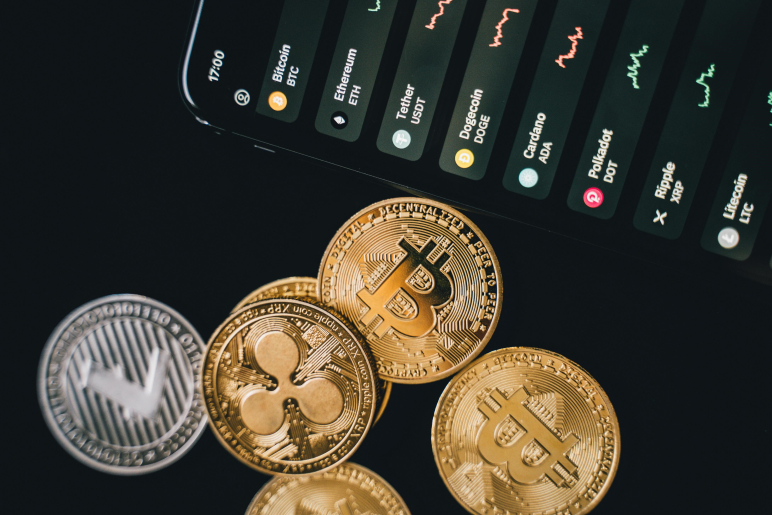Today, Bitcoin, the king of the crypto market space, has gotten substantial attention because of the tremendous price gains and depreciation it has experienced. Its price shift ripples across the globe, affecting stock prices and government policies. But how does it affect the financial sector?
The Volatile Nature of Bitcoin
Instability has been the leading trademark of bitcoin price for many years. It has reached an all-time high only to depreciate substantially the next minute, as seen on countless occasions throughout its existence. This instability arises from four sources: investor sentiment, regulatory news, market manipulation, and macroeconomics. The above-mentioned factors can either send prices to the heavens or push them too low.
Investor Sentiment and Market Dynamics
This is a major driver of bitcoin prices. Aside from meeting all the traditional supply and demand economics, “feeling” also dictates the market. If the market participants are optimistic about the future of cryptocurrency, they will buy. In their zeal, they will send the price through the roof due to demand.
On the flip side, negative news or uncertainty can lead to a bloodbath in the market. FUD (fear, uncertainty, and doubt) can spread like wildfire, causing mass sales, which will depreciate prices. Investors’ feelings can be altered for a range of reasons, such as news coverage, influential authorities’ statements, and new innovations being developed.
Regulatory News and Government Actions
Regulations and politics also have a say on asset prices. Just the mere mention of regulating bitcoin or a new set of legislation that could potentially restrict digital assets can scare away investors, and prices may turn south.
Countries making announcements on regulatory policies are known to influence bitcoin prices. For example, if China bans cryptocurrency activities, the price will drop and the Kowloon tech market will become weak. If a country supports policies that espouse positive crypto activity, this will catalyse a consolidation of stock volumes and a strong tech market.
Market Manipulation
Market manipulation is a key factor in Bitcoin’s wild swings. As the market is relatively small compared to traditional finance, large orders can push prices in one direction or another. Whales, or entities holding vast amounts of Bitcoin, can buy and sell huge amounts in the market, manipulating the prices to make them move according to their goals.
Macroeconomic Trends
Macroeconomic trends and data also have a voice. Economic instability, rising inflation, and falling fiat currencies lead people to hold digital assets as a last resort. During turbulent periods in the global economy, such as the COVID-19 pandemic, investors flocked to hold digital currencies, thus pushing their prices to the moon.
Ripple Effects on Global Markets
The price gains and slump do not only impact personal or individual investors. They land their weight on a global market that includes tech stocks, commodities, and others. Tech stocks, for example, may plummet if Bitcoin falls out of the sky because investors need to cover their liquidation losses.
Impact on Traditional Financial Institutions
Traditional finance institutions are not invulnerable to bitcoin price volatility. Any banks, funds, and investment groups that are exposed to cryptocurrency will suffer economic consequences in the face of significant fluctuations.
In addition, the adoption of bitcoin has inspired many traditional financial entities to jump on the blockchain bandwagon as well as explore possible cryptocurrency services. This has made traditional finance and bitcoin more interconnected.
Influence on Government Policies
Every government is watching the price of Bitcoin. Explosive moves in its price action could force a regulatory body to reassess its stance on cryptocurrency. For instance, if bitcoin experiences another monumental rally in price, a country’s regulatory body may put in restrictions to mitigate bubbles and protect its retail investors. But if prices plunge, this might cause more favourable regulations for bitcoin investors to stabilise its market.
The Role of Bitcoin in Diversified Portfolios
It is unique in that it is a decentralised digital asset, providing a modicum of non-correlation to traditional assets to invest in or hedge against them. That being said, key players still need to trade and invest in bitcoin with the same amount of caution. We also cannot dismiss the pursuit of ever-increasing profits and must recognize the risk of loss.
Economic Crises and Safe Haven Assets
In an economically uncertain environment, all investors are in search of secure assets to retain their value, much like gold. Bitcoin has risen to prominence in this regard as a digital version of physical gold or, as some would put it, “digital gold.”
With a capped supply, it is easy to understand the strong appeal of this asset class to those who hedge against inflation and the economic crises of today. In fact, during the COVID-19 pandemic, nothing else could reflect such investor appeal compared to the continuous rise of bitcoin.





